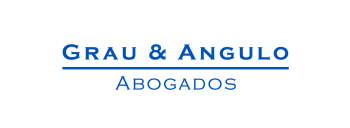In a June 9 2016 judgment (Case C-470/14) the European Court of Justice (ECJ) resolved the request for a preliminary ruling raised by the Spanish Supreme Court (a contentious administrative court) regarding the compatibility of the Spanish system of fair compensation for private copying financed by the general state budget with EU Directive 2001/29/EC.
The system of fair compensation for private copying financed by the general state budget was introduced in Spain by Royal Decree 1657/2012 (in force since 2012). Collecting societies EGEDA, Derechos de Autor de Medios Audiovisuales and Visual Entidad de Gestión de Artistas Plásticos filed an appeal (34/2013) before a contentious administrative court against the system. The adoption of the new system implied that fair compensation was no longer paid by the manufacturers and importers of reproducing devices, as happened under the previous system of the digital levy, which was included in the price of the reproducing device and thus was paid by all taxpayers, regardless of whether they made private copies.
In the context of the contentious administrative appeal, the Supreme Court referred a question to the ECJ on the compatibility of the system regulated in Royal Decree 1657/2012 with Article 5.2.b of Directive 2001/29/EC, which regulates the exception to the reproduction right of authors for private copying. The Supreme Court asked whether a system of fair compensation for private copying financed by the general state budget in which it was impossible to ensure that the cost of that compensation was borne by the actual users of private copies was in accordance with the directive (for further details please see "Supreme Court requests preliminary ruling on private copying levy").
In order to deal with the preliminary ruling, the ECJ reviewed its previous case law regarding the interpretation of Article 5.2.b of Directive 2001/29/EC, taking into account the following considerations:
- Article 5.2.b requires member states that apply the private copying exception to guarantee the actual recovery of fair compensation for rights holders.
- The directive does not preclude, in principle, member states which have decided to introduce the private copying exception from choosing to establish, in that context, a fair compensation system financed not by a levy, but by their general state budget.
- The exception of private copying is intended exclusively for natural persons who have at their disposal reproducing devices or appliances which can reproduce protected works or subject matter for private use and for purposes neither directly nor indirectly commercial (without the effective making of private copies being a requisite).
- Legal persons excluded from benefiting from the private copying exception should not in any event be the persons ultimately liable for payment of the fair compensation (regardless of the fact that, as under levy systems, they can be liable for the payment at first and then charge the amount to the consumers who will ultimately pay the fair compensation).
The judgment points out that in the Spanish system of fair compensation for private copying the item in the budget allocated for the payment of fair compensation comes from the budget resources of the general state budget, and therefore also from all taxpayers, including legal persons. Further, no documentation was filed to the court that suggested any particular measure allowing legal persons to request exemption from contributing to financing compensation or even to seek reimbursement.
Therefore, the ECJ resolved the preliminary ruling by stating that the Spanish system of fair compensation for private copying financed by the general state budget was contrary to Article 5.2.b of Directive 2001/29/EC, since it was impossible to ensure that the cost of this compensation was borne by the users of private copies.
For further information on this topic please contact Guillem Villaescusa at Grau & Angulo by telephone (+34 93 202 34 56) or email ([email protected]). The Grau & Angulo website can be accessed at www.gba-ip.com.
This article was first published by the International Law Office, a premium online legal update service for major companies and law firms worldwide. Register for a free subscription.



